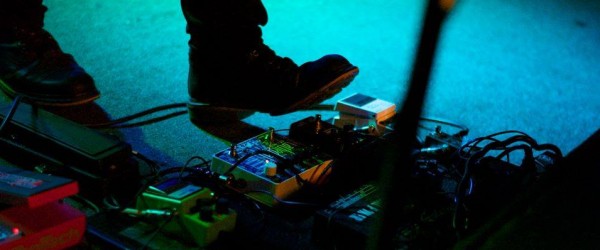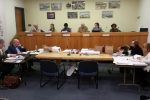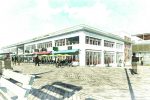New Sound Mitigation laws before City Council Weds
Temporary fix allows music to play from 7 a.m. to 10 p.m.
At the end of the near two hour-long special Tuesday night meeting to address noise and music violations, increased by the popularity and growth of the downtown’s entertainment venues, Planning Board member Garrett Giberson Jr played a quick snippet of Starship’s “We built this city on rock and roll,” via cell phone.
The meeting was one that had the eight attending members and its professionals weaving through the complexities of how to craft changes to sound mitigation rules that would prove fair to the various entertainment, retail and restaurant venues in what is officially known as the Central Business District.
A mass mailing of letters were sent out last month to all business in violation of the current laws. The problem however was that many of those businesses, eateries and retail shops, were being hurt by a law meant to protect residents living in the mixed use buildings that line the downtown corridor from loud music and noise permeating into their homes.
Any venue that did not submit a sound mitigation report were told to turn the music off or face an up to $2,000 a day fine.
The City Council quickly moved on how best to remedy the situation based on recommendation from its Director of Planning and Development Michele Alonso.
While Alonso initial proposed eliminating the sound mitigation report, everyone agreed to hold off on that measure until the sound mitigation ordinance could be fully vetted.
At the heart of the problem is enforcement, Zoning Officer and Board Secretary Barbara Van Wagner said.
“There is a whole variety of music going on in the downtown,” she said. “We shouldn’t do anything really drastic right now. For the time being, think about where the problems are and where the problems aren’t.”
Police Department representatives Guy Thompson and David Kelso spoke to the subjectiveness of the current laws and the difficulties with enforcement. Among the problems is the need for a better sound detector, the machine police can use to measure the decibel level.
Board member Jim Henry suggested that the governance be placed in the hands of the construction department as a failsafe to catch new businesses who do not appear before the Planning or Zoning Board.
While Alonso recommended an overhaul that would mimic Hoboken’s laws but would need Department of Environmental Protection approval, a process that could take six months.
“I think businesses need to know that this is a behavior modification program. If you do this, this many times, this is what is going to happen,” Van Wagner said.
Board attorney Jack Serpico said the guidelines must come definitive standards in order to enforce the laws.
“You want their feet being brought to the fire, it’s going to have to have some teeth,” Serpico said. “Sooner or later all it’s going to take is one place getting closed up for a couple weeks down and loosing that revenue for the word to get that we better start complying or we could be hit the next time.”
Mayor John Moor agreed, saying he would opt to hold ABC liquor license reviews more frequently than the annual July review if a business had multiple violations.
In the end the board opted to create a temporary band aid that will let the music play through the summer season.
The Planning Board’s recommendation to the City Council will be presented at the 7 p.m. Wednesday night Regular Meeting.
The temporary changes will require all businesses in the downtown adhere to current decibel sound levels but those currently without an engineer’s sound report will be allowed to play background music from 7 a.m. to 10 p.m.
Outside of those hours, businesses without the report face the aforementioned fines and penalties.
—————————————————————–
Follow the Asbury Park Sun on Facebook, Twitter and Instagram.
The Asbury Park Sun is affiliated with the triCityNews newspaper.















